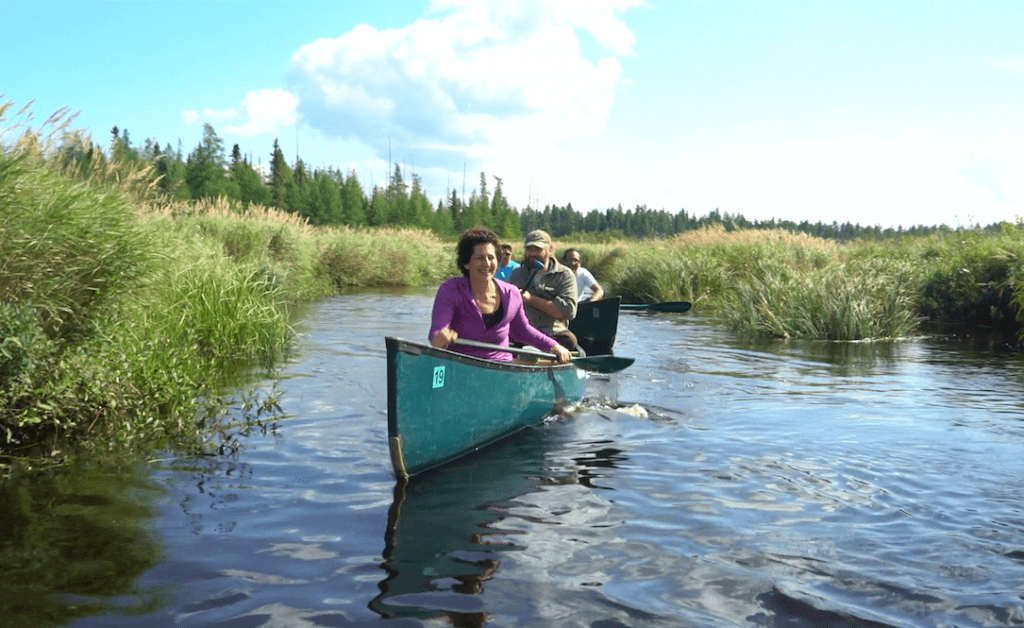
The site in northern Minnesota is currently owned by the U.S. Forest Service, but road access is restricted. The group got to the site by canoeing several miles up the Partridge River, filming the wild waterway that would be downstream of the mine pits, and vulnerable to potential pollution.
At the mine site, Ojibwe people who joined the journey gathered plants, a right guaranteed by the 1854 Treaty of La Pointe.
Dispelling the “brownfield’ myth
PolyMet proponents have often said the mine would be a good project because it would reuse an existing “brownfield” site, already significantly impacted by mining and industry.
Earlier this year, Senate majority leader Tom Bakk said, “PolyMet is the perfect project, a very small project to see if we can figure out, from a brownfield site and with an existing tailings basin, figure out if we can do this.”
WaterLegacy points out it is only the processing plant and tailings basin sites that have already been affected, while the actual site of the open pits PolyMet would dig to extract ore is located in untouched wetlands about six miles east of the main facility. The mine site is connected to the processing plant by an existing rail line.
The video shows the wetland complex where PolyMet proposes to mine as having value to the public, which currently owns the land. It offers recreational opportunities, as well as places for the Ojibwe to exercise their legal rights to fish, hunt, and gather.
Company could soon control property
PolyMet announced yesterday that it will complete a deal with the Forest Service to acquire the mine site on June 28. The company will exchange lands it has purchased elsewhere in northern Minnesota to acquire the surface rights to the site.
“This administrative exchange gives us exclusive control of the land over our ore body and provides a secure foundation on which we can complete project financing and permitting, build the project, create hundreds of sustainable jobs, and bring these essential metals to market,” said Jon Cherry, president and CEO.
Environmental groups have challenged the exchange in several lawsuits.
Last week, Minnesota two senators, Tina Smith and Amy Klobuchar, introduced an amendment to an unrelated defense spending bill to expedite the exchange. Similar legislation authored by Rep. Rick Nolan passed the House last year. It was criticized by environmentalists for being a “sweetheart deal” for the company, paying only $550 per acre, and a short circuit of the courts which are considering the lawsuits.

